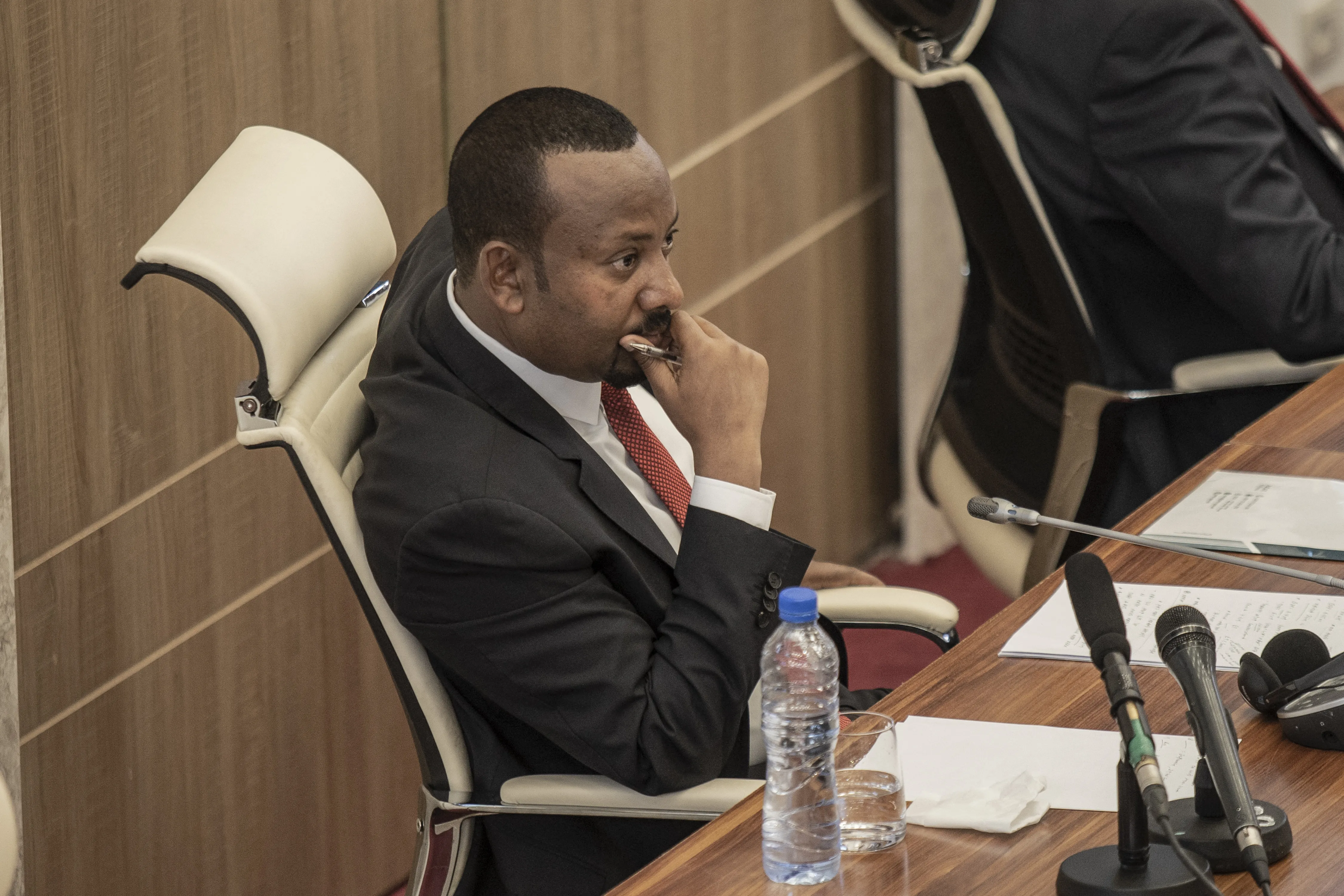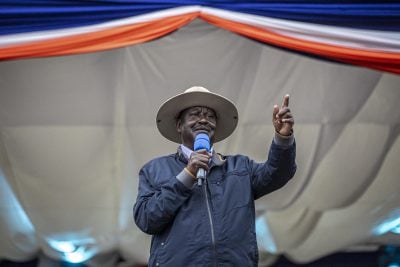Ethiopia’s transformational deal with Somaliland to provide Addis Ababa with access to the Red Sea, potentially in return for recognition of the breakaway region’s independence, has provoked a furious backlash from Somalia and an intervention by the African Union.
On Monday, Ethiopia signed a memorandum of understanding to gain access to port facilities in Somaliland, as part of a process that could eventually lead to Addis Ababa providing diplomatic recognition to Somaliland.
But the MoU provoked a furious response from the internationally-recognised government of Somalia, which continues to insist that Somaliland is part of Somalia’s sovereign territory. Mogadishu said the agreement was “null and void”, a violation of its sovereignty, and that it “considers this action as an aggression”.
In an escalation of the dispute, Somalia turned away an Ethiopian Airlines plane transporting officials from Ethiopia to Somaliland to discuss the deal, which it said did not have permission to be in Somali airspace. The foreign ministry of Somalia said there was “no space for mediation unless Ethiopia retracts its illegal MOU and reaffirms the sovereignty and territorial integrity of Somalia.” Mogadishu received diplomatic support for its tough stance from Egyptian President Abdel Fattah al-Sisi, who criticised the deal and said that “Egypt will not allow anyone to threaten Somalia or affect its security.”
African Union Commission chairperson Moussa Faki Mahamat called for “calm and mutual respect to de-escalate the simmering tension” between Ethiopia and Somalia and “stresses the imperative to respect unity, territorial integrity and full sovereignty of all African Union member states including [the] Federal Republic of Somalia and [the] Federal Democratic Republic of Ethiopia”
Mahamat urged the countries to “engage without delay in a negotiation process to settle their differences in the most constructive, peaceful and collaborative manner”.
Initial reports suggested that Ethiopia would provide diplomatic recognition to Somaliland, although the Ethiopian government appeared to backtrack following initial criticism of the deal.
On Wednesday, two days after the MoU was signed, the Ethiopian government said it would “make an in-depth assessment towards taking a position regarding the efforts of Somaliland to gain recognition”.
That suggests an understanding of the deal somewhat at odds with that pronounced by Somaliland’s president, Muse Bihi, when the deal was signed.
“We are pleased to announce, and want to express gratitude to the prime minister, and Ethiopia, according to our agreement written here, that we will give 20km of sea and they will recognise us,” Bihi said.
A transformational deal?
Somaliland declared independence from Somalia in 1991, but has never been formally recognised by a sovereign state. Ethiopia, meanwhile, is the world’s most populous landlocked country. Securing access to the Red Sea has been a key strategic priority for a succession of Ethiopian leaders.
Although the details of the proposed deal are still to be finalised, Ethiopia is set to receive a 50-year lease for a 20km stretch of the Somaliland coastline, where it will be entitled to construct a military base alongside commercial maritime trade facilities.
In a statement when the deal was announced, the office of Ethiopian prime minister Abiy Ahmed said that the “historic” agreement would have “huge significance for regional integration”, while enabling Ethiopia to “enhance its role in maintaining regional peace and security”.
Somaliland is set to receive a stake in Ethiopian Airlines as part of the deal. One issue to clarify in final negotiations will be the status of the Port of Berbera. In 2018, Ethiopia signed a deal to take a 19% stake in the port, which is majority-owned by Emirati infrastructure giant DP World. Four years later, however, Somaliland authorities said that Ethiopia had not met financial conditions needed to complete the acquisition of its stake.
Searching for the sea
The MoU is the latest twist in a centuries-long effort by Ethiopia to secure access to the Red Sea. The country of 120m people did gain a Red Sea coastline when it subsumed Eritrea after the Second World War, but has once again been landlocked since Eritrea’s independence in 1993.
Addis Ababa’s relations with Eritrea were extremely frosty until a rapprochement in 2018, meaning that Ethiopia was forced to become highly dependent on Djibouti for its imports and exports.
“Diversifying its port access will ultimately work to reduce import costs for operators in the country in the longer term,” says Robert Hutchinson, partner at Control Risks.
The sense of vulnerability from being dependent on Djibouti has remained a major preoccupation for the Ethiopian government. Abiy caused a stir last October, when he claimed in a televised address that Ethiopia was living in a “geographic prison” and warned that Red Sea access was “a matter of Ethiopia’s very existence”.
Some analysts interpreted his words as a coded threat of war against Eritrea after relations between the neighbours deteriorated again last year. The non-profit International Crisis Group has included a possible Ethiopia-Eritrea war among “10 conflicts to watch in 2024“, warning that a resumption of hostilities could bring “staggering costs”.
The agreement with Somaliland, however, could indicate that Ethiopia will pursue other avenues to gain Red Sea access.
“The deal will likely help ease tensions between Ethiopia and Eritrea,” says Control Risks’ Hutchinson. “Abiy’s previous comments had unnerved Asmara and there were reports of troop movements along the Ethiopia-Eritrea border. However, Asmara will be wary of an Ethiopian naval base on the Red Sea, meaning that the diplomatic relationship between Ethiopia and Eritrea will remain tense.”
Recognition
Nevertheless, Hutchinson is doubtful that any move by Ethiopia to recognise Somaliland will encourage other actors to follow suit.
“Ethiopia does not have the ability to sway regional or broader international opinions on this matter,” he says, noting that other countries in the region and regional bodies remain “wary that recognising Somaliland would embolden other secessionist movements”.
Tewodros Sile, associate director for intelligence and analysis at advisory firm Africa Practice, adds that Addis Ababa would be reluctant to recognise Somaliland unilaterally, owing to the likelihood of “criticism by international partners and allies”. All the world’s leading powers have made commitments to Somalia’s territorial integrity, he points out.
Sile notes that China could have a “particularly critical” role in resolving the dispute. Somaliland angered China in 2019 when it strengthened diplomatic relations with Taiwan, which Beijing regards as part of its own territory. China’s status as Ethiopia’s largest bilateral investor could be “another potential avenue for pressure on Addis Ababa”, he says.
Want to continue reading? Subscribe today.
You've read all your free articles for this month! Subscribe now to enjoy full access to our content.
Digital Monthly
£8.00 / month
Receive full unlimited access to our articles, opinions, podcasts and more.
Digital Yearly
£70.00 / year
Our best value offer - save £26 and gain access to all of our digital content for an entire year!
 Sign in with Google
Sign in with Google 



